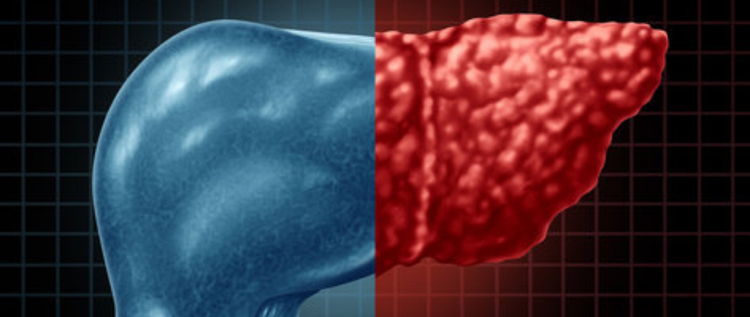
What is Fatty Liver?
Fatty liver, also known as hepatic steatosis, occurs when fat accumulates in the liver cells. This buildup can impair liver function and lead to inflammation, potentially progressing to more severe conditions like cirrhosis or liver cancer if left untreated.
Causes of Fatty Liver:
-
Alcohol Consumption: Excessive alcohol intake can cause alcoholic fatty liver disease.
-
Non-alcoholic Fatty Liver Disease (NAFLD): This is linked to conditions such as obesity, insulin resistance, diabetes, and metabolic syndrome.
-
Medications: Certain medications, such as corticosteroids, tamoxifen, and methotrexate, can contribute to fatty liver.
-
Genetic Factors: Inherited disorders like Wilson’s disease or familial hypobetalipoproteinemia can predispose individuals to fatty liver.
-
Rapid Weight Loss: Sudden weight loss or malnutrition can cause fatty liver due to rapid mobilization of fats.
Symptoms of Fatty Liver:
-
Usually Asymptomatic: Early stages may not cause noticeable symptoms.
-
Fatigue: Persistent lack of energy and feeling of weakness.
-
Abdominal Discomfort: Discomfort or pain in the upper right side of the abdomen.
-
Enlarged Liver: Detectable during a physical exam in some cases.
Diagnosis and Management:
-
Medical History and Physical Exam: Assessing risk factors and symptoms.
-
Blood Tests: Checking liver function tests and lipid profiles.
-
Imaging Studies: Ultrasound, CT scans, or MRI to visualize the liver and assess fat accumulation.
-
Liver Biopsy: Sometimes performed to confirm diagnosis and assess severity.
Management of Fatty Liver:
-
Lifestyle Changes: Emphasizing a healthy diet rich in fruits, vegetables, and whole grains; limiting saturated fats, sugars, and refined carbohydrates.
-
Weight Management: Achieving and maintaining a healthy weight through regular exercise and calorie control.
-
Control of Medical Conditions: Managing conditions like diabetes, high blood pressure, and high cholesterol that contribute to fatty liver.
-
Avoidance of Alcohol: If alcoholic fatty liver disease is diagnosed, complete abstinence from alcohol is crucial.
-
Medications: In some cases, medications may be prescribed to manage underlying conditions or reduce liver fat accumulation.
Prevention:
-
Healthy Lifestyle: Adopting a balanced diet and regular exercise routine.
-
Moderate Alcohol Consumption: Limiting alcohol intake to reduce the risk of alcoholic fatty liver disease.
-
Regular Medical Check-ups: Monitoring liver function and overall health.
Conclusion:
Fatty liver is a common condition that can often be managed effectively with lifestyle modifications and, in some cases, medical intervention. Recognizing risk factors, understanding symptoms, and implementing appropriate management strategies are essential steps in promoting liver health.
For personalized guidance and expert care, consult Dr. Ashish Kumar Jha, a trusted healthcare provider dedicated to liver health and wellness.
